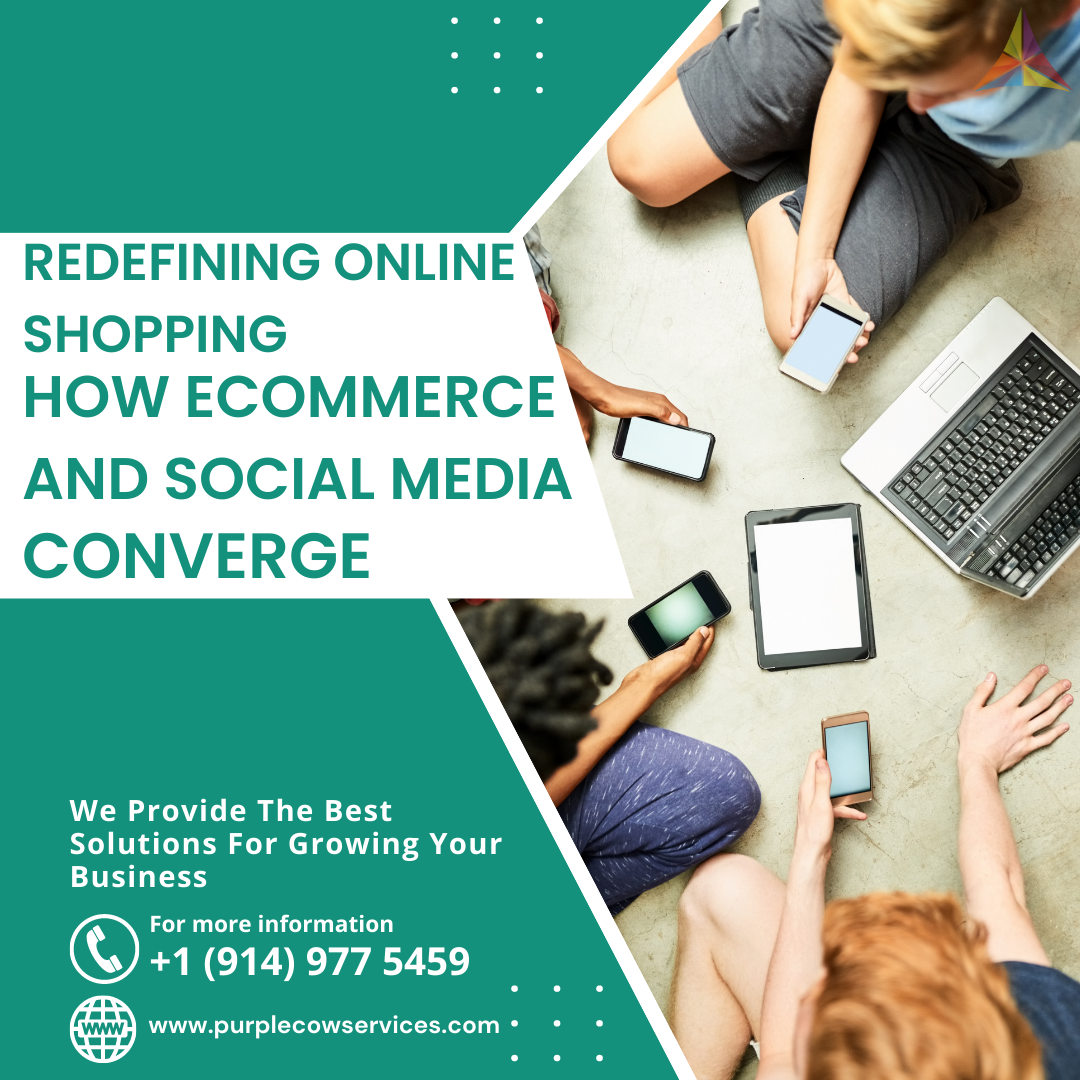In this comprehensive blog post, we will explore how eCommerce and social media are redefining the shopping experience. From social commerce trends and influencer marketing to user-generated content and personalized recommendations, we will uncover the powerful synergy between these two domains. Get ready to dive into the exciting world where eCommerce and social media converge.
The Rise of Social Commerce
In recent years, social commerce has emerged as a significant trend, reshaping the online shopping landscape. Social commerce refers to the integration of eCommerce functionalities into social media platforms, allowing users to discover, browse, and purchase products directly within their favorite social networks. This convergence has had a profound impact on online shopping behavior, providing users with a seamless and immersive shopping experience.
Major social media platforms, such as Facebook, Instagram, and Pinterest, have recognized the potential of social commerce and have introduced features like shoppable posts and product catalogs. These platforms have effectively transformed themselves into digital marketplaces, where businesses can showcase their products and consumers can make purchases without leaving the social media environment.
For businesses, social commerce offers numerous benefits. Firstly, it enhances brand exposure by reaching a broader audience through social media platforms. Additionally, it fosters customer engagement by enabling direct interaction with potential buyers. Social commerce also provides valuable insights into consumer behavior and preferences, allowing businesses to refine their marketing strategies and offerings.
Social influencers play a crucial role in driving sales and conversions through social commerce. With their large followings and influence, influencers can promote products to their audiences, leading to increased brand awareness and sales. Collaborating with influencers allows businesses to leverage their credibility and reach, effectively tapping into their followers’ trust and interest.
Influencer Marketing in eCommerce
Influencer marketing has become an integral part of the eCommerce landscape, providing businesses with a powerful tool to reach and connect with their target audience. Influencers, who are individuals with a significant online following, have the ability to sway consumer purchasing decisions through their recommendations and endorsements.
When partnering with influencers, businesses should carefully consider their target audience and ensure that the influencer’s values align with their brand. Authenticity is key in influencer marketing, as consumers are more likely to trust and engage with content that feels genuine and relatable.
There are various types of influencer partnerships, including sponsored posts and brand collaborations. Sponsored posts involve influencers promoting products or services in exchange for compensation, while brand collaborations involve more extensive partnerships that may include content creation, events, or product development. The choice of partnership depends on the specific goals and budget of the business.
Measuring the effectiveness of influencer marketing campaigns is essential for maximizing return on investment (ROI). Metrics such as reach, engagement, and conversions can provide insights into the impact of influencer collaborations. Tracking these metrics allows businesses to refine their influencer marketing strategies and identify the most effective influencers for their brand.
User-Generated Content and Social Proof
User-generated content (UGC) has become a driving force in eCommerce sales. UGC refers to any form of content created by users, such as reviews, ratings, photos, and videos, showcasing their experiences with products or brands. This type of content has a significant impact on consumer purchasing decisions, as it provides social proof and builds trust and authenticity.
Encouraging customers to generate and share UGC can be achieved through various strategies. For example, businesses can run contests or campaigns that incentivize customers to create and share content related to their products. They can also provide a platform or hashtag for customers to share their experiences and opinions. By actively engaging with UGC and featuring it on their website or social media channels, businesses can demonstrate the value and satisfaction their products bring to customers.
Customer reviews and ratings are particularly influential in shaping purchase decisions. Studies have shown that consumers trust reviews from fellow shoppers as much as personal recommendations. Positive reviews and high ratings can instill confidence in potential buyers and encourage them to make a purchase. Businesses should actively monitor and respond to customer reviews, addressing any concerns or issues promptly to maintain a positive brand image.
To leverage UGC effectively, businesses can incorporate it into product pages and social media campaigns. Displaying customer photos and videos of products in use can provide visual evidence of their quality and functionality. Sharing UGC on social media platforms can also create a sense of community and encourage further engagement and sharing.
Personalized Recommendations and Social Data
One of the significant advantages of the convergence between eCommerce and social media is the availability of vast amounts of social data that can be used to personalize the online shopping experience. Social media platforms gather data about users’ interests, preferences, and behaviors, which can be harnessed to provide tailored product recommendations.
Personalized recommendations enhance the shopping experience by presenting users with products that align with their individual tastes and needs. By analyzing a user’s past purchases, browsing history, and social media interactions, algorithms can generate personalized product suggestions that are more likely to resonate with the user. This level of personalization not only improves the user experience but also increases the likelihood of conversion and repeat purchases.
There are different types of personalization techniques employed in eCommerce, such as collaborative filtering and behavioral targeting. Collaborative filtering analyzes user behavior and preferences to identify patterns and make recommendations based on similar users’ preferences. Behavioral targeting, on the other hand, uses data on a user’s past interactions and browsing history to deliver targeted advertisements and recommendations.
However, it is crucial for businesses to navigate the ethical considerations associated with using social data for personalization. Privacy concerns and data protection regulations must be respected, and users should have control over the collection and usage of their data. Transparency in data practices and providing clear opt-out options are essential to maintain trust and ensure compliance.
Conclusion:
The convergence of eCommerce and social media has revolutionized the way we shop, making it more interactive, personalized, and social. From social commerce trends and influencer marketing to user-generated content and personalized recommendations, the synergistic relationship between eCommerce and social media continues to redefine the online shopping experience. Embrace this transformation, adapt your strategies, and leverage the power of eCommerce and social media convergence to stay ahead in the dynamic world of online retail. Get ready to shape the future of online shopping by tapping into this powerful combination.
Introducing Purple Cow: Redefining online shopping by harnessing the power of eCommerce and social media convergence. Unlock new levels of engagement, personalization, and social interaction in your online retail journey. With Purple Cow, discover innovative strategies that connect your brand with the digital-savvy consumers of today. Stand out from the herd and revolutionize your eCommerce and social media approach with Purple Cow’s social media marketing services. Choose Purple Cow and redefine the way you shop online.
Remember, the world of eCommerce and social media is constantly evolving. Stay updated with the latest trends and technologies, and continue to experiment and adapt your strategies to meet the changing needs and expectations of your customers. By embracing the convergence of eCommerce and social media, you can position your business for success in the dynamic and interconnected landscape of online retail.














